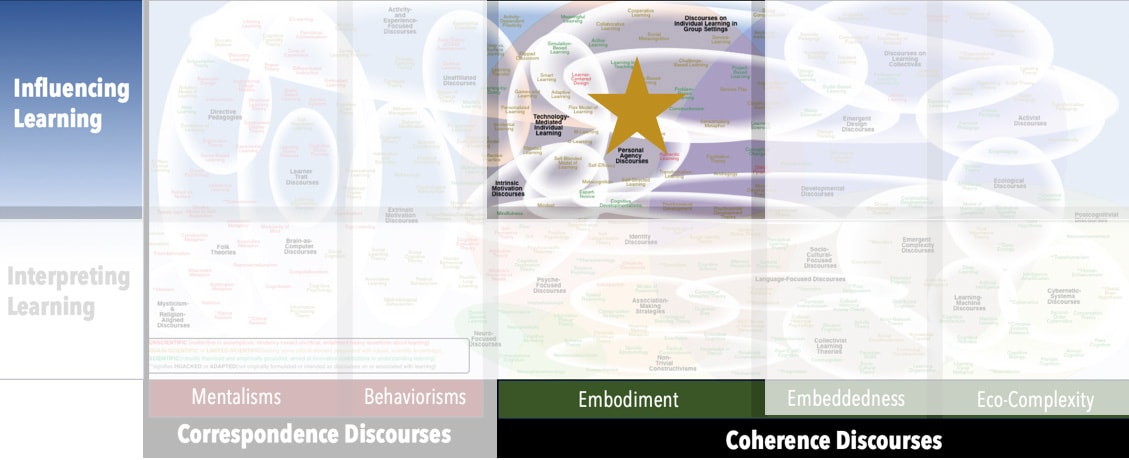Focus
Brain changes triggered by physical practicePrincipal Metaphors
- Knowledge is … memories
- Knowing is … remembering
- Learner is … brain (nervous system)
- Learning is … affecting synapses
- Teaching is … structuring practice
Originated
1970sSynopsis
Activity-Dependent Plasticity combines insights from Neuroscience and Embodiment Discourses. The theory is developed around the realization that the robustness and fidelity of memories has to do with synaptic strength, which in turn is directly related to the sort and extent of the learner’s physical activities. The principal result is a set of interpretations of what goes on in the brain when the learner is involved in specific (usually repetitive) physical movements, practices, and/or stimulations.Commentary
The most obvious criticism of Activity-Dependent Plasticity is that it does little more than bridge an insight from Neuroscience to common educational practices. More cuttingly, the perspective is profoundly reductionist as it reduces learning to brain-based changes. Moreover, proponents tend to rely uncritically on the Acquisition Metaphor and notions rooted in Information Processing Theory. Subdiscourses include:- Activity-Dependent Synaptic Plasticity – the early maturation of synapses (see Synaptic Plasticity, under Neuroplasticity) and increased efficiency of trans-synaptic activity occasioned by well-designed educational interventions
Authors and/or Prominent Influences
Paul Bach y RitaStatus as a Theory of Learning
Activity-Dependent Plasticity is a not theory of learning. While proponents draw heavily on neuroscientific description of complex neuronal systems and functions, they do not add to understandings of those phenomena.Status as a Theory of Teaching
Activity-Dependent Plasticity is a theory of teaching – although it offers little pragmatic advice.Status as a Scientific Theory
Activity-Dependent Plasticity is based on robust science, but it is little more than a one-lane bridge between two domains. It is uncritical of its own metaphors, and it offers no insights beyond the broader contributions of Neuroeducation.Subdiscourses:
- Activity-Dependent Synaptic Plasticity
Map Location

Please cite this article as:
Davis, B., & Francis, K. (2022). “Activity-Dependent Plasticity” in Discourses on Learning in Education. https://learningdiscourses.com.
⇦ Back to Map
⇦ Back to List
